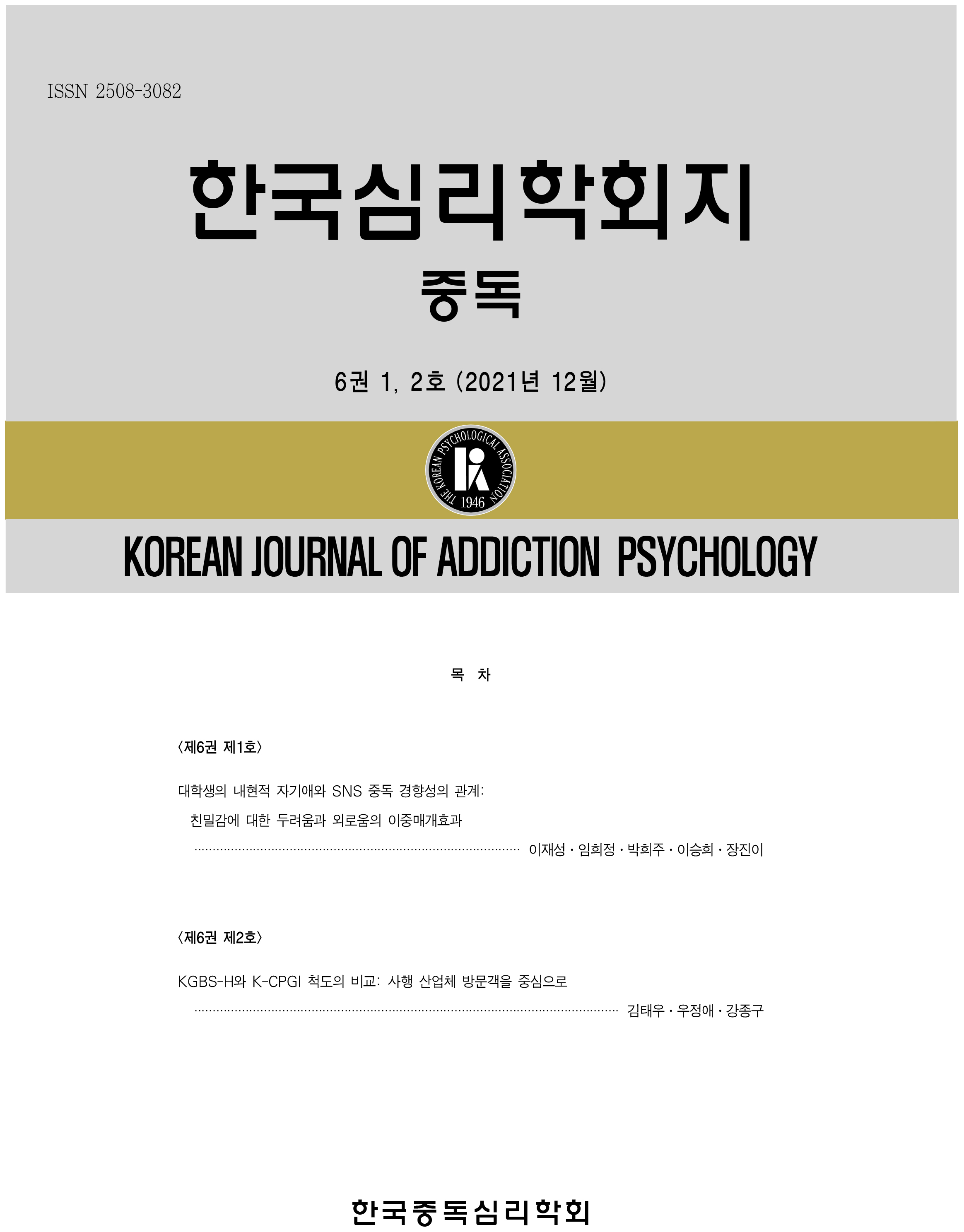Korean Journal of Addiction Psychology
- P-ISSN2508-3082
- E-ISSN3091-6054
 ISSN : 2508-3082
ISSN : 2508-3082
The Effects of Attachment Trauma, Self-esteem, Depression, Self-regulation on Smart phone Addiction in Korean Adolescents: Focusing on 'Escape Theory Model'
Sung-man Shin (Department of Psychology, Handong University)

Abstract
The main purpose of this study was to examine whether the process of Smart phone addiction accords with Baumeister's escape from self theory among Korean adolescents. Escape theory has been made good use of accounting operating mechanism and causal link of diverse factors that lead to ultimate self-destructive behavior. For this purpose, this study analyzed the effects of attachment trauma, self-esteem, depression, self-regulation on Smart phone addiction, each stage corresponds with 'Escape Theory Model'. Korean Children and Youth Panel Survey(2014) data were analyzed by means of Pearson's correlation, and path analysis by the use of SPSS 19.0, Amos 18.0. Subject of analysis was 1,851 2nd grade students in high school who answered having Smart phone. The results of this study are as follows. First, Smart phone addiction has significant positive, negative correlations with all other variables. Especially, self-regulation showed highest correlation with Smart phone addiction. Second, results of path analysis with domestic data indicated that the 'original escape theory model' produced a good fit to the data. Consistent with escape theory, a path model yielded significant paths from attachment trauma to self-esteem, self-esteem to depression, depression to self-regulation, self-regulation to Smart phone addiction. Third, results of path analysis with domestic data indicated that the modified 'alternative model(depression precedes low self-esteem)', produced a good fit to the data than a original model. This path model yielded significant paths from attachment trauma to depression, depression to self-esteem, self-esteem to self-regulation, self-regulation to Smart phone addiction. Based on these results, not only Smart phone addiction of Korean adolescents can be explained as self-destructive behavior by escape theory, but also the stages and orders of escape model can appear in different guises in different cultures. Therefore, emotion-focused prevention and treatment preceding cognitive factor for Smart phone addiction would be more effective for Korean adolescents. In conclusion, this study suggests a useful and practical method for conducting interventions for the Smart phone addiction of youth.
- keywords
- Smart phone addiction, Pathological Smart phone use, Escape from self theory, Self-destructive behavior, Adolescence, Attachment Trauma, Self-esteem, Depression, Self-regulation, Emotion-focused therapy
- Submission Date
- 2016-04-18
- Revised Date
- 2016-06-05
- Accepted Date
- 2016-06-13
- 2,205Downloaded
- 300Viewed
- 0KCI Citations
- 0WOS Citations
